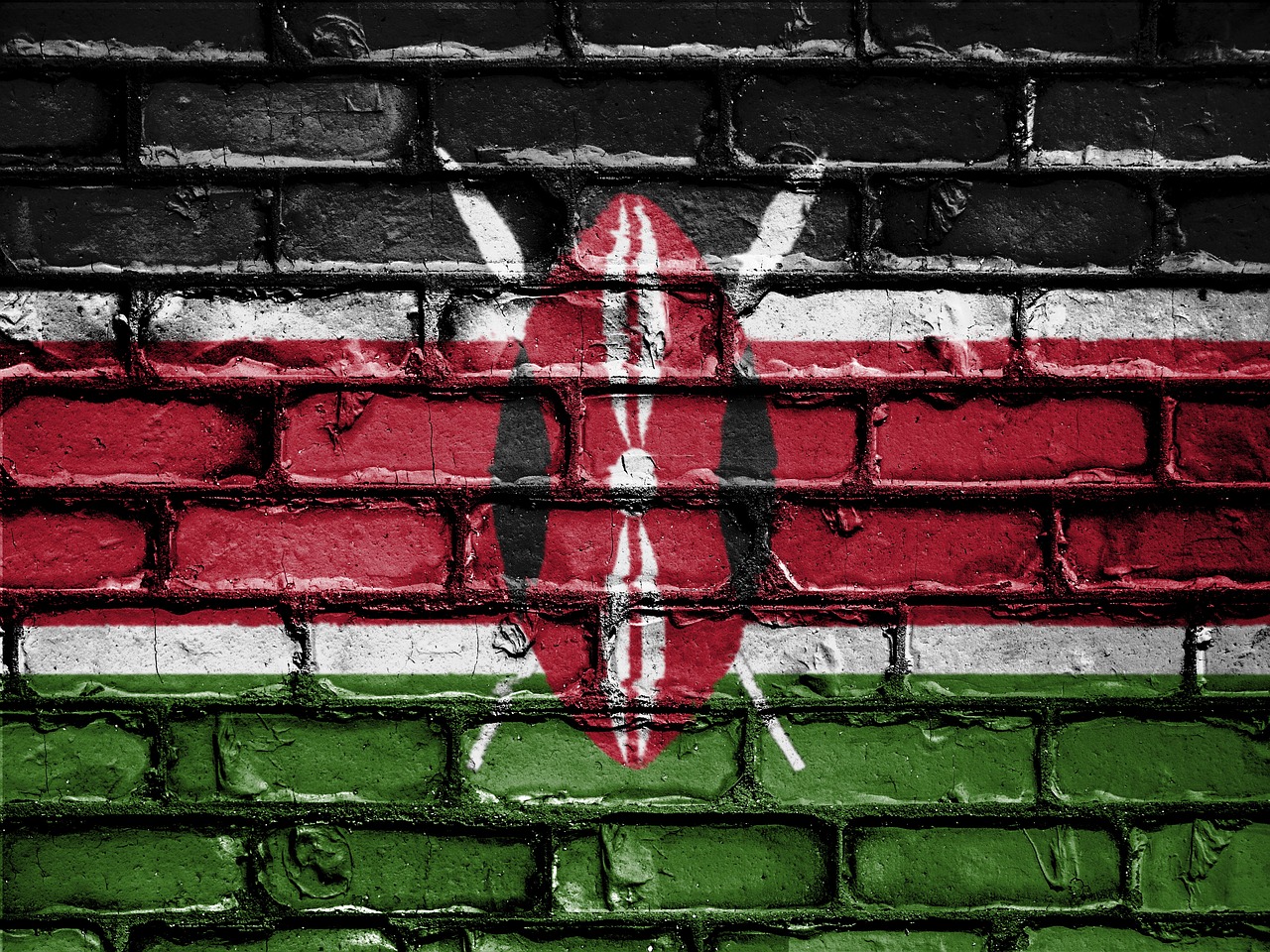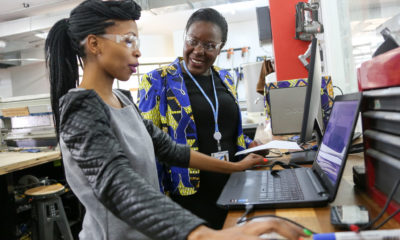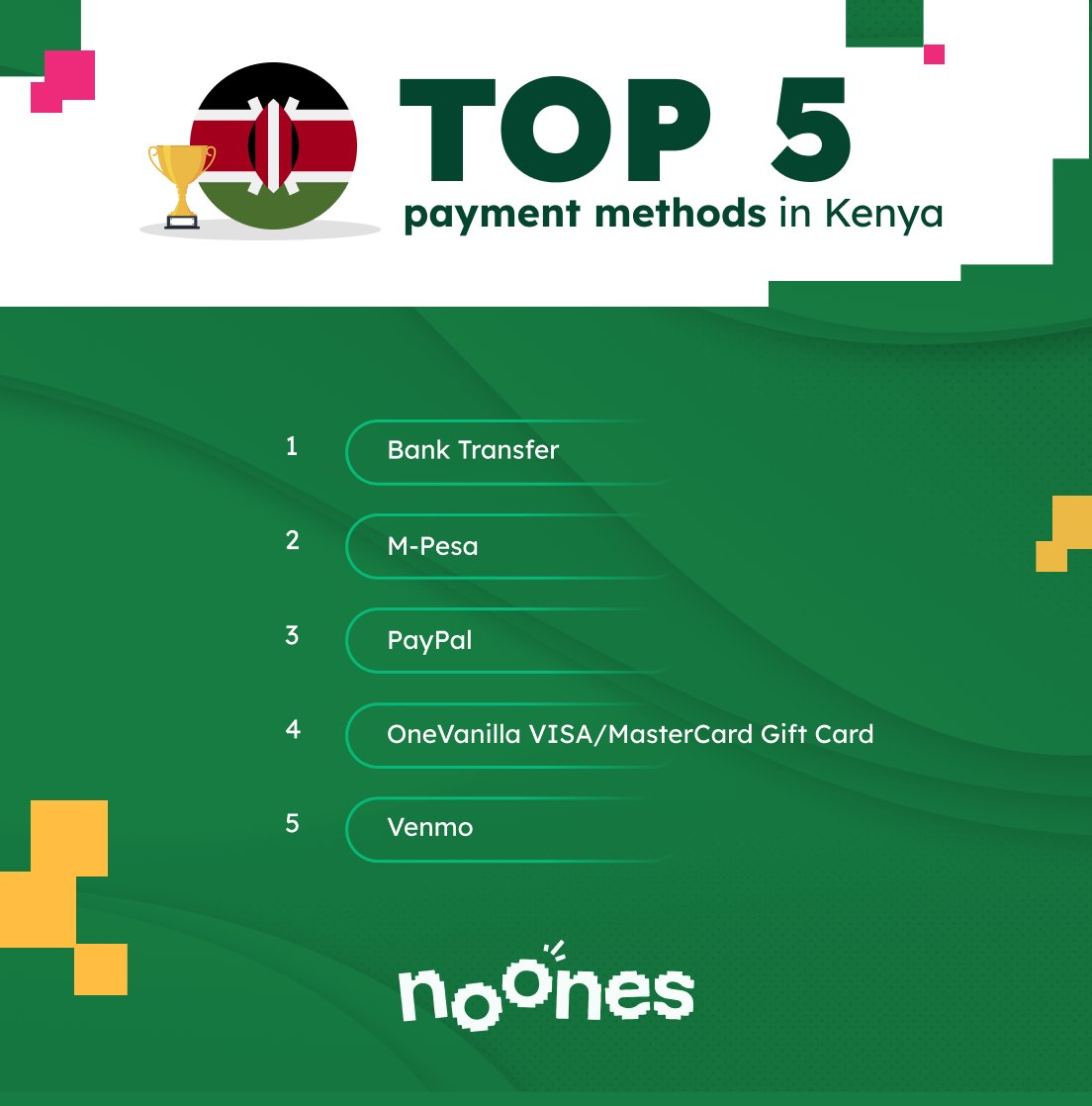Bitcoin
The State of Bitcoin in Kenya
Published
8 years agoon

Since the early days of bitcoin, many believed that the digital currency would end up banking the unbanked in developing regions such as Africa. While bitcoin adoption in Africa has made some commendable steps forward, its use as a payment method is yet to have a far-reaching impact. Despite this, the African continent has seen the establishment of some well-known bitcoin economies of which Kenya is one of the most prominent.
In this article, you will gain an insight into the state of bitcoin in Kenya and learn about the challenges that bicoin startups are facing in this East African economic hub.
The Bitcoin Ecosystem in Kenya
Kenya is one of the African nations where bitcoin use has continued to gain significant momentum, which has led to the development of a thriving local bitcoin economy.
As more African countries awaken to the adoption of bitcoin, only Kenya, Nigeria, Ghana, and South Africa provide promising bitcoin ecosystems that incorporate bitcoin liquidity, local bitcoin communities, startups, and meetups.
Kenya’s bitcoin ecosystem boasts regular meetups, a co-working space and accelerator focused on blockchain technology, is home to several bitcoin startups and exchanges, is experiencing an increasing demand for bitcoin and a community that’s well-versed in mobile money usage.
BitPesa – Kenya’s Leading Bitcoin Startup
There would be no talk of bitcoin in Kenya without the mention of BitPesa, its leading local bitcoin startup. Nairobi-based BitPesa was launched in 2013 with the aim to provide businesses and individuals with a cheaper alternative of making international payments to and from Africa by leveraging bitcoin as a payment method. The use of bitcoin has enabled BitPesa to lower payment costs in and out of Africa by 50 percent.
 Since its establishment, BitPesa has been able to raise more than $10 million in funding from leading venture capital firms that are focused on blockchain technology to expand to other markets. The venture capitals that funded BitPesa include Draper Associates, BitFury Capital, Blockchain Capital and Digital Currency Group.
Since its establishment, BitPesa has been able to raise more than $10 million in funding from leading venture capital firms that are focused on blockchain technology to expand to other markets. The venture capitals that funded BitPesa include Draper Associates, BitFury Capital, Blockchain Capital and Digital Currency Group.
With over 17,000 transactions and more than 6,000 users, BitPesa’s current operations are in Kenya, Tanzania, Nigeria, Senegal, Democratic Republic of Congo, Uganda, and the United Kingdom. The payment platform allows businesses to process payments in over 30 currencies across borders.
Initially, BitPesa started its operations targeting private individuals who were looking for alternative means of remitting money. However, they have since changed their model and have started to offer their services to businesses. Changing their model to focus on B2B clients and enabling them to make cross-border transactions has not only seen their expansion into other African markets but has continued to shape the BitPesa success journey enabling it to raise further funding in 2017.
Despite the strong growth of BitPesa’s trading volumes in Africa, however, it has been forced to seize KES payments due to the pushback of the Kenyan central bank against bitcoin and bitcoin-related startups in September 2017. Unfortunately, BitPesa is not the only bitcoin startup facing difficulties when it comes to banking in Kenya due to the central bank’s very clear negative stance on the digital currency.
Central Bank of Kenya’s View on Bitcoin
Following an embroiled court case between BitPesa and Safaricom – Kenya’s largest telecommunication network – in December 2015, a statement warning the public about the use of bitcoin was issued by the Central Bank of Kenya (CBK) across various newspapers. In part, the warning stated:
“virtual currencies such as bitcoin are not legal tender in Kenya and therefore no legal protection exists in the event that the platform that exchanges or hold the virtual currency fails or goes out of business…”
In the eyes of the CBK, the anonymous nature of bitcoin payments makes it, “…susceptible to abuse by criminals in money laundering and terrorism financing”.
Following this directive by the CBK, no known directive or clarity has been offered on the use of bitcoin or on any other form of digital currency.
However, it has become known that the Central Bank of Kenya has communicated to local banks not to perform any business whatsoever with bitcoin startups. Following this communication, several bitcoin startups such as BitPesa had their bank accounts shut down. This, of course, poses a challenge to new and existing bitcoin startups who want to operate in the country.
Kenya’s Blockchain Hub
The opening of a blockchain-focused startup incubator and co-working space by BitHub.Africa in 2016 in Nairobi made Kenya the first of a kind in the East African Community to house one.
 BitHub.Africa was founded in 2015 by John Karanja, a former employee of BitPesa. His desire was to create a space that would help drive the adoption of blockchain technologies and solutions in Africa. BitHub.Africa has a co-working space, an accelerator for startups that are interested in creating blockchain solutions, and provides consulting and advisory services for
BitHub.Africa was founded in 2015 by John Karanja, a former employee of BitPesa. His desire was to create a space that would help drive the adoption of blockchain technologies and solutions in Africa. BitHub.Africa has a co-working space, an accelerator for startups that are interested in creating blockchain solutions, and provides consulting and advisory services for
BitHub.Africa has a co-working space, an accelerator for startups that are interested in creating blockchain solutions, and provides consulting and advisory services for organisations that are interested in blockchain technology.
Blockchain Technology in Kenya
Unlike bitcoin, blockchain technology is very welcome in East Africa’s largest economy. As BitcoinAfrica.io reported on September 14, several industries in Kenya are implemented blockchain solutions to improve their services.
The National Transport and Safety Authority (NTSA) announced that it will be mandatory for Kenyan vehicles to have electronic stickers. The electronic motor identification service will ensure that all drivers have the stickers on the windscreens of their cars and will be detected by use of special gadgets. This move will help in the recovery of stolen vehicles and rid Kenya of unsafe old cars. The service will operate on a shared blockchain platform that will link key state agencies like the Kenya Police and the Kenya Revenue Authority together.
Furthermore, Kenya’s health sector will make use of blockchain technology through the installation of a smart platform that will enable all public hospitals to monitor important patient data such as a patient’s health history as well as for the use of public health and hospital management.
In the insurance sector, America Insurance Group (AIG) has partnered with banking group Standard Chartered to launch a pilot using blockchain technology where it ran cover offers for their policyholders across America, Kenya, and Singapore. The pilot saw the two companies process real-time payments for their clients on a unified blockchain-powered platform that linked their agents and financial institutions.
Needless to say, industry in Kenya is discovering the benefits of blockchain technology for itself and many more applications using the distributed ledger technology are expected to follow.
Bitcoin Adoption in Kenya
One of the major setbacks bitcoin adoption has faced in Africa is the high cost of the Internet and a lack of Internet connectivity. As it stands, Internet penetration in Africa is at 18 percent, which is substantially lower than the acceptable global average rate of 30 percent. Many rural areas in some African nations are quite distant from cable stations making Internet connectivity expensive and inefficient.
Besides being one of the two countries in Sub-Saharan Africa with leading telecommunication development, Kenya’s Internet penetration stands at 66 percent which is the highest in Africa. This has made Nairobi – the capital of Kenya – a hub for many tech startups and is famously known as Silicon Savannah. Moreover, in Africa, according to data from McKinsey, Kenya leads in the adoption and use of mobile payment with 86 percent of houses having active mobile money accounts.
While these elements make Kenya a conducive environment for bitcoin startups, there are a handful of entrepreneurs that have adopted the use of bitcoin in providing solutions in the region. Besides BitHub.Africa and BitPesa, Umati Blockchain, BitSoko, Belfrics Kenya, and Remitano are other startups that are making use of bitcoin in Kenya.
 Bitcoin merchant adoption in Kenya, on the other hand, is nothing to write home about. Currently, there are only a handful of companies in Kenya that accept bitcoin payments for their services as stated by CoinMap, a platform that gathers and lists traders that take bitcoin. These include two tech companies, two travel agents, and three e-commerce shops.
Bitcoin merchant adoption in Kenya, on the other hand, is nothing to write home about. Currently, there are only a handful of companies in Kenya that accept bitcoin payments for their services as stated by CoinMap, a platform that gathers and lists traders that take bitcoin. These include two tech companies, two travel agents, and three e-commerce shops.
According to several members of the bitcoin community in Nairobi, bitcoin use is prevalent among the youthful tech-savvy generation who receive bitcoin payments for their freelance work or are buying them for investment purposes.
The Future of Bitcoin in Kenya
With a bitcoin-unfriendly central bank, international bitcoin startups are finding it hard to break into the Kenyan market and homegrown startups are struggling to get off the ground. Nonetheless, bitcoin adoption is on the rise in Kenya as can be witnessed by trading volumes on LocalBitcoins. Even the national media has been reporting about bitcoin, which has boosted bitcoin awareness in the East African nation.
Should the Central Bank of Kenya change its view on the use of cryptocurrencies, Kenya would have the potential to become a leading global bitcoin economy as the country benefits from a well-educated driven young generation of entrepreneurs and developers in Nairobi’s Silicon Savannah who are very capable of developing new bitcoin and blockchain business solutions if they were to receive the regulatory stamp of approval and support from local authorities.
You may like
-


Introducing Noones – Africa’s P2P Super App
-


Weekly Roundup: Kenyan Senate in Discussion with CBK to Legalise Bitcoin & More
-


Weekly Roundup: Morocco’s Central Bank Announces Completion of Draft Cryptocurrency Regulatory Framework & More
-


Weekly Roundup: South African Crypto Exchange VALR Launches in Zambia & More
-


Weekly Roundup: Kenya’s Capital Markets Bill 2022 Seeks to Tax Crypto Transactions & More
-


Get Lucky Tickets for World Cup Bets on 1xBit

Samara Asset Group has unveiled the world’s first Bitcoin Consumer Price Index (BTCCPI), a groundbreaking economic indicator that measures how the purchasing power of Bitcoin has evolved compared to traditional fiat currencies like the USD and EUR.
The new index, launched on May 5, 2025, tracks the value of a standard basket of goods and services priced in Bitcoin rather than conventional currencies.
According to Samara, the BTCCPI demonstrates Bitcoin’s disinflationary nature, showing that while goods priced in fiat currencies become more expensive over time due to inflation, the same goods priced in Bitcoin have actually decreased in cost long-term despite short-term fluctuations.
“Inflation metrics like CPI have a fundamental flaw […] they only measure prices in fiat currencies, which are constantly losing purchasing power due to inflation. Instead, we’ve created an alternative that leverages a currency with a fixed supply and predictable monetary policy, Bitcoin. The Samara BTCCPI reveals how Bitcoin’s purchasing power has evolved relative to everyday expenses,” said Patrick Lowry, CEO of Samara Asset Group.
Challenging Traditional Economic Indicators
The BTCCPI represents a direct challenge to conventional economic thinking by offering an alternative perspective on purchasing power and inflation.
While central banks around the world continue to manage monetary policy that leads to currency devaluation, Bitcoin’s fixed supply of 21 million coins provides a stark contrast.
Samara’s index will be continuously updated in parallel with the publishing of official CPI data for both Europe and the United States, allowing for real-time comparison between fiat-based and Bitcoin-based purchasing power metrics.
Bitcoin as a Treasury Reserve Asset
The launch of the BTCCPI aligns with Samara’s own financial strategy of using Bitcoin as its primary treasury reserve asset. This approach aims to protect shareholder value against the erosion of purchasing power that comes with holding traditional currencies.
“Bitcoin is often called ‘hard money’ for a reason, and for the first time, our index clearly shows precisely how much harder Bitcoin is compared to traditional fiat currencies,” Lowry added.
The Malta-based company has made the BTCCPI data for both Europe and the United States freely accessible on their website at https://samara-ag.com/bitcoin-cpi.

True financial freedom can now be experienced in Africa thanks to the ability to offramp from fiat-based currencies such as the Kenya Shilling ($KES) to the Bitcoin standard courtesy of the Bitcoin super application, Noones.
As the name suggests, absolutely no one right now can manipulate, intimidate or steal Africans’ value and well as time when they choose to embrace this idea whose time has come by trading peer-to-peer on the Noones App.
The Noones application has a messenger, wallet, and marketplace all in one. These 3 features ensure that Africans can now trade Bitcoin peer to peer either on mobile, tablets, or computers 24/7.
NOONES CHAT
The capability to communicate in real-time is of vital importance when it comes to Bitcoin peer-to-peer trading. This is because the peer who is buying Bitcoin needs to communicate with the selected trader to make sure they are available to trade, the amount they need is available, verify the payment details, confirm they have sent funds and receipt of the Bitcoin.
Access to customer support is also crucial as money is emotive; thus, making the chat feature on the Noones application give users peace of mind that all their queries will be resolved in a timely manner. Their team lead Mr. Ibrahim on his visit to Kenya personally assured me that all customer care issues will be taken very seriously and addressed as soon as possible to ensure high customer satisfaction when anyone uses the Noones app.
PAYMENT METHODS
The peer-to-peer Bitcoin trading experience on Noones is very convenient due to the multiple payment methods in Kenya. Bank transfers, M-Pesa, PayPal, Visa, and Venmo are some of the most popular ways Kenyans prefer to utilize. Many more payment rails will be added to the platform to make sure convenience is what users experience as they trade.
STRATEGY
BITCOIN EDUCATION
The youth in Kenya make up the biggest demographic of the country’s population, and despite being educated, talented as well very driven, they suffer due to widespread unemployment. The Noones team is very passionate in regards to Bitcoin education to ensure that the youth learn, thus broadening their horizons to be in a position to earn through peer-to-peer Bitcoin trading furthermore, get jobs as per their competencies in Bitcoin companies and or get paid in Bitcoin e.g. for selling art.
As a full-time Bitcoin content creator and educator I love the approach by Noones to address real issues in Kenya by Bitcoin education and training sessions.
GROWTH
Existing peer-to-peer traders in Kenya and Africa have been plagued by stupidity in regards to platforms like Paxful not having their best interest at heart, thus locking accounts. However, Noones is the solution to this as the team is dedicated and on the ground.
EVERYONE EATS
A true champion for Africa as a Bitcoin ambassador building for Africa is a perfect description of Ray who is the C.E.O of Noones. His passion and on the ground experience give a lot of confidence to peer-to-peer traders that they are utilizing a platform that has their best interests at heart.
The Noones partnership program provides a viable and sustainable opportunity for African youth to make an honest living which the Kenyan government can not due to corruption and false promises. Earning via referrals and your own effort is a revolutionary process that takes working from home to a whole new level. Anyone can get started by using the link & referal code ‘MasterGuantai’.
HAPA NI KAZI TU
The Noones marketplace is the best, especially because of the verified peer-to-peer traders. This means you can trade with people who the Noones team has their KYC/AML (Know your customer, Anti-Money laundering) data, meaning they can not steal your funds.
We are always on the grind is the meaning of ‘Hapa Ni Kazi Tu’, which is my mantra. African youth are ready, willing and able to put in the proof of work to make sure they learn and earn in the Bitcoin space. The Noones application provides a perfect opportunity for this to ensure dignity as well as a viable opportunity to not only make ends meet but prosper.
CONCLUSION
The Noones platform provides the change that the youth and young adults want to see in Africa. Having a Bitcoin super application at everyone’s tips provides just that.
The corruption, indoctrination and manipulation of the fiat-based monetary system is evident in everyday life. The way forward is to explore new horizons by unlearning what we were taught to believe is the status quo which is hurting our lives. Fortune Favour a the bold and taking action is the only way forward as stagnation will ensure we are perpetual slaves to a system that is not in our best interest.
The Noones application provides all of as with the opportunity to chart a brighter way forward to preserve our dignity, time and value on the Bitcoin standard.

Statistics, examples, and ways to legally use cryptocurrency
October 1, 2013, was a turbulent day for San Francisco Public Library. A dozen FBI agents pretending to be usual visitors surrounded a man sitting at one of the tables, took his laptop and put a pair of handcuffs on his hands. That man was Ross Ulbricht, founder of Silk Road – the largest darknet marketplace for drug dealers, killers, and other criminals. The seizure of Ulbricht was supposed to tackle the illegal online trade, but, as the news site DeepDotWeb wrote, the bust was “the best advertising the darknet markets could have hoped for”. The reputation of cryptocurrency also suffers from associations with terrorists, who sometimes use it for their needs. How big is the real scale of the problem? And how many legal ways to use crypto exist? ChangeNOW has dived into the topic – and suggests you an overview of the current state of the problem.
Highlights:
- The drugs trade volume using cryptocurrency is relatively large
- Crypto was a significant reason why a part of drug sales migrated to the web, though stays yet not viable and anonymous enough for dealers (same as for terrorists)
- As efficient use of blockchain technology requires good infrastructure, crypto remains not suitable enough for many terrorist groups
- However, some terrorists are trying to adjust to anonymity threats and hold fundraising in crypto
- Legal ways to use cryptocurrency include dozens and vary from IT services to car rentals
Crypto & Drugs & Rock’n’Roll

The total volume of the online drug market using cryptocurrency is around $1 billion. It is located in the darknet, which provides an attractive, profitable, and mostly secure environment for drug dealers. Cryptocurrency, in turn, allows making payments that are hard to be tracked by authorities. This is how blockchain technology has helped to bring a big part of drug sales online from the streets. And it’s not only about drugs themselves – many legal opioid drugs are illegally sold here, too.
However, cryptocurrency is not always as secure and anonymous as it is thought to be. The information about any transaction ever made stays forever in the blockchain, which makes the system way more transparent than cash payments. This is a significant limitation for using crypto in illegal purposes.
According to the University of Technology Sydney, about 46% of criminal activity of each year is connected to Bitcoin. As for the drug sale itself, trade volumes in crypto keep rising, but the percent of Bitcoin drug transactions out of all transactions goes down. This means Bitcoin is more frequently used for legitimate purposes.
What cryptocurrency is used for drug sales most often? Surprisingly, privacy coins such as Monero are used only for 4% of transactions. Due to its pioneer position, Bitcoin is used in 76% of all deals despite all its anonymity risks.
The main problem for drug dealers using crypto is to turn their income into cash. This move remains complicated and insecure. Most cryptocurrency exchanges have instruments to define whether a transaction is coming from a suspicious source like the darknet. The rise of Monero use in the online drug market will hinder such tracking. However, for the reasons listed above, crypto is unlikely to completely replace regular cash in drug sales in the foreseeable future.
Cryptoterrorism

The views on how much cryptocurrency is used and will be used by terrorists vary widely. While some claim that terrorists have no infrastructure to use it and the methods are not secure enough, others argue that they are learning fast and adjust to crypto rapidly. Let’s see what both sides say.
Not actively using, unclear future
Lack of appropriate infrastructure, inability to use crypto. Most terrorist groups settle in the Middle East region, especially on its remote and war-torn territories. The vast majority of roads and technological infrastructure have been destroyed. In such circumstances, cash remains the most common and convenient way to pay and fundraise. Imagine a gun seller in a Syrian village – does it look like he has a tool to accept Monero?
Anonymity threats. Given the relative transparency of blockchain mentioned above, crypto might remain too unsafe for terrorists. Miners can see any potential terrorist money exchange while checking transactions, and it’s not too hard to see who sends them money. It can change with the rising use rate of privacy coins, but the ability to spend such money remains questionable.
Increased attention to crypto by the authorities. As the number of transactions keeps rising, more regulatory bodies’ attention gets focused on cryptocurrency, which apparently makes terrorists nervous and cautious.
Problems of specific currencies. While top cryptocurrencies like Bitcoin receive much regulatory attention, others remain marginal and unreliable because of a lack of support. Conflicts and uncertainty lower the trust to such cryptocurrencies – yes, even terrorists’ trust.
Using actively now, increasingly in the future
Terrorists seem to be rapidly learning to escape from tracking in blockchain. Several years ago it was easy to find any address or transaction made for a terrorists’ fundraiser. Today they use well organized and finely designed websites, where detailed video tutorials show how to donate money anonymously. Unique Bitcoin addresses and other crypto tricks are used to preserve security. Analysts from intelligence services claim there’s only going to be more such cases. And, of course, privacy coins are a “great opportunity” for terrorists too.
Shift to cryptocurrency is a reaction to economic sanctions. ISIS has lost most of its territory and resources, Hamas has been sanctioned by the West. Having been cut off from all main financial institutes, terrorist groups had to find other pathways for their financial activities – and cryptocurrency appeared to be the best substitute.
There might be difficulties and inconveniences, and the number of terrorists using crypto is yet unknown – but as we can see, digital money in terrorism is reality. Same as in drugs. And this is what cryptocurrency is notorious for, lacking trust among millions of people. The reputation of some of the exchange services only adds to this mistrust – ChangeNOW has carried out a special investigation on how such platforms may cheat their clients. But can you buy anything besides heroin and firearms with your crypto? What about pizza or a concert ticket?
Only Antarctica left
Cryptwerk, a platform monitoring actual use cases of different cryptocurrencies, says there are about 3500 ways to spend Bitcoin and more than 800 for Monero today. They range from music services to car rentals, from buying clothes to hotel booking services, and from sports bets to virtual tours.
Organizations accepting cryptocurrency are located on all continents besides Antarctica (what could be a better place for crypto than a continent without governments and countries though?). Mostly, in the USA and Central Europe. Bitcoin as the largest cryptocurrency is relatively widespread in India and Southeast Asia.
As this is a whole another topic, ChangeNOW will issue a post dedicated to use cases of cryptocurrencies. As it will be more detailed, who knows – maybe you’ll find a pizza right by that you could pay for from your crypto wallet!
This article was contributed by Jeremy from ChangeNow.

Magic Eden Has Quietly Become the Best Ethereum NFT Marketplace

Samara Asset Group Launches Bitcoin CPI (BTCCPI)

Introducing Noones – Africa’s P2P Super App

Why Crypto’s Leading the Way in Africa’s Evolving Finance Landscape

The Rise of Bitcoin in the Online Gaming World

Unlock the Thrills of NHL Crypto Betting and Live Streaming

Understanding the Impact of Cryptocurrency Volatility on NBA Betting Markets

The Future of Crypto College Football Betting: Trends and Predictions

How Mobile Apps are Changing Sports Betting

Weekly Roundup: Africa’s Cassava Network Partners with UniPass to Expand Crypto Adoption in Africa & More
Popular Posts
-

 Features3 years ago
Features3 years agoWhy Crypto’s Leading the Way in Africa’s Evolving Finance Landscape
-

 Bitcoin2 years ago
Bitcoin2 years agoIntroducing Noones – Africa’s P2P Super App
-

 Features3 years ago
Features3 years agoThe Rise of Bitcoin in the Online Gaming World
-

 Features3 years ago
Features3 years agoThe Future of Crypto College Football Betting: Trends and Predictions
-

 Features3 years ago
Features3 years agoUnderstanding the Impact of Cryptocurrency Volatility on NBA Betting Markets
-

 Features3 years ago
Features3 years agoUnlock the Thrills of NHL Crypto Betting and Live Streaming
-

 Features8 months ago
Features8 months agoMagic Eden Has Quietly Become the Best Ethereum NFT Marketplace
-

 Bitcoin10 months ago
Bitcoin10 months agoSamara Asset Group Launches Bitcoin CPI (BTCCPI)


